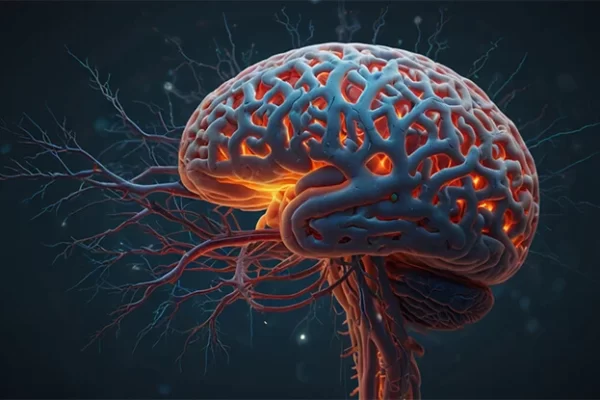Integrative psychotherapy is a methodology that does not adhere to one specific psychotherapeutic approach but rather combines or integrates elements from various schools and theories of psychotherapy.
The main idea behind integrative psychotherapy is that no single approach can meet the needs of all patients. Therefore, psychotherapists need to take the most valuable and useful elements from different approaches and integrate them into their practice. This allows the therapist to better adapt to the unique needs of each client.
The core principles of integrative psychotherapy include:
- Individualism: Integrative psychotherapy acknowledges the uniqueness of each person and recognizes that different individuals may respond differently to therapy.
- Flexibility: Integrative psychotherapy is open to using various methods and techniques depending on the client’s needs and the issues they face.
- Holism: This approach acknowledges the complexity and multi-faceted nature of human experience, including physical, emotional, intellectual, and spiritual components.
- Collaboration: The therapist and client work together to develop an individualized treatment plan that considers the client’s goals, preferences, and strengths.
- Development: Integrative psychotherapy aims not only to alleviate immediate symptoms of mental disorders but also to support the client’s personal growth and self-actualization.

How has integrative psychotherapy developed?
Integrative psychotherapy is a relatively new direction in psychology and psychotherapy, with its foundations laid in the mid-20th century.
In the 1950s, there was a rise in interest in psychotherapy, which traditionally used psychoanalysis and behavioral therapy. Although these approaches worked reasonably well, many specialists began to see the need to integrate various approaches for a better understanding and treatment of mental illnesses.
In the 1960s, in response to this need, several integrative psychotherapeutic models were proposed, combining psychodynamic and behavioral approaches.
In the 1970s, the concept of integration continued to evolve thanks to the work of scholars who promoted the idea of technical eclecticism – combining the best strategies and techniques from different theoretical models.
In the 1980s and 1990s, integrative psychotherapy’s popularity and recognition grew, leading to the establishment of the Society for the Exploration of Psychotherapy Integration (SEPI) and the Journal of Integrative and Eclectic Psychotherapy, which stimulated research and development in this field.
From the 2000s to the present day, integrative psychotherapy continues to develop and adapt, responding to modern needs and new scientific discoveries in psychology and neuroscience.
Thus, integrative psychotherapy is the result of the evolution and adaptation of psychotherapy to the needs of patients and new scientific discoveries, and it continues to develop in response to contemporary challenges.

Key Concepts, Theories, and Approaches of Integrative Psychotherapy
Integrative psychotherapy is based on the principle of combining various theoretical approaches and methods to provide the most effective treatment for a specific individual. This implies not just a mixture of different approaches but a commitment to deeply understand and integrate ideas and strategies from various schools of psychotherapy. The integrative approach acknowledges and respects each patient’s individuality and allows the therapist to be flexible and creative in using treatment methods.
Important concepts of integrative psychotherapy include:
- Technical Eclecticism: Choosing strategies and techniques from different schools depending on the client’s problem and context.
- Theoretical Integration: Combining theories from different approaches to better understand the client’s issues.
- Assimilative Integration: Starting with one primary model but accepting methods and ideas from other approaches as needed.
All these concepts aim to provide the most effective, individualized, and comprehensive assistance to people facing psychological difficulties.
Eclectic Approach
The eclectic approach applies theories, methods, and practices from different therapeutic models to create a personalized treatment approach. This is not a random mix of methods but a conscious choice based on the psychotherapist’s education, experience, and clinical judgment.
In the eclectic approach, the psychotherapist selects the most suitable therapy or combination of therapeutic approaches based on the specific needs and goals of each client. For example, cognitive-behavioral therapy may be used for anxiety and depression, psychodynamic therapy for discussing long-term emotional issues, and systemic therapy for relationship problems.
The eclectic approach is based on respecting each client’s uniqueness and recognizing that there is no single “best” approach suitable for everyone. It allows the therapist to be flexible and adaptive, using the tools and strategies most effective for the specific client at a given moment.
Psychodynamic Approach
The psychodynamic approach focuses on unconscious processes as determining factors in behavior. The primary assumption of the psychodynamic approach is that our everyday thoughts, feelings, and behaviors are largely determined by unresolved issues and conflicts from the past, of which we are often unaware.
Psychodynamic therapy aims to uncover and process these unconscious conflicts. In the process, the therapist and client explore the client’s past experiences and relationships to understand how they affect their current state. The goal is to help the client see and understand hidden patterns in their behavior, which will help them deal with current problems and conflicts.
Although this approach is one of the oldest in psychotherapy, it continues to evolve and adapt, and its principles and methods are widely used in many modern psychotherapeutic tasks.
Cognitive-Behavioral Approach
The cognitive-behavioral approach in psychology and psychotherapy focuses on the interconnection between thoughts, feelings, and behaviors. It is based on the assumption that negative thoughts and beliefs can cause negative emotional states and problematic behavior, and changing these thoughts and beliefs can improve mood and behavior.
Cognitive-behavioral therapy (CBT) is an active, problem-oriented form of psychotherapy that engages the client in changing their thought processes. In CBT, the therapist works with the client to help them identify and change negative or distorted thoughts and beliefs, develop more adaptive ways to cope with emotional difficulties, and improve social and problematic behavior.
Cognitive-behavioral therapy has strong empirical support and is one of the most researched and widely applied approaches in psychotherapy. It is effective in treating a wide range of mental disorders, including depression, anxiety disorders, post-traumatic stress disorder, eating disorders, and many others.
Humanistic Approach
The humanistic approach in psychology is based on respect for each person’s uniqueness and dignity. Humanistic psychotherapy focuses on personal growth and self-development, helping people realize their potential and become their true selves. This approach emphasizes freedom of choice, responsibility for one’s life, and the importance of self-awareness and self-actualization.
Founders of humanistic psychology, such as Abraham Maslow and Carl Rogers, argued that people strive for self-actualization, or the full realization and use of their abilities and talents. Humanistic therapy includes methods such as client-centered therapy, gestalt therapy, and transpersonal psychology.
Existential Approach
The existential approach in psychotherapy addresses existential issues such as the meaning of life, freedom and responsibility, loneliness, and death. Existential therapy aims to help people cope with the fears associated with these fundamental aspects of human existence.
Existential therapists, such as Viktor Frankl and Irvin Yalom, helped clients explore and overcome obstacles to personal freedom and self-actualization. Although existential therapy can be used independently, its principles and ideas are often integrated into other psychotherapeutic approaches.

Methods and Techniques of Integrative Psychotherapy
The methods and techniques of integrative psychotherapy can vary significantly depending on the specific case and approach used. However, the main idea is to combine the best practices and methods from various therapeutic models to create a flexible, individualized treatment plan.
These methods may include elements of cognitive-behavioral therapy, psychodynamic therapy, humanistic and existential therapy, among other approaches. It is important to note that the choice of techniques is usually based on the specific needs and goals of each patient.
Specific techniques in integrative psychotherapy may include cognitive restructuring (identifying and changing negative beliefs), interpersonal work (developing communication and conflict resolution skills), relaxation techniques (progressive muscle relaxation or meditation), dream work, and the use of artistic therapeutic means (painting or theater). The choice of specific methods and techniques largely depends on the therapist’s assessment and the client’s preferences.
Examples of Techniques
- Cognitive Restructuring: This technique helps the client identify and change negative or distorted thoughts and beliefs. For example, if a client frequently says, “I always mess everything up,” the therapist can help them realize that this generalization is a distortion and work on forming more realistic and constructive thoughts.
- Mindfulness Techniques: These are used to improve attention to the present moment and reduce reactivity to negative thoughts or feelings. A psychologist might suggest a mindfulness exercise, such as focusing on breathing or body sensations, to distract from anxiety or stress.
- Insight-Oriented Techniques: These are applied to explore and resolve deep emotional conflicts or difficulties. For instance, a therapist might use projective testing techniques or free associations to help the client become aware of their feelings or conflicting states.
- Behavioral Activation Techniques: These help clients engage in desirable and meaningful activities, especially when they are prone to negative emotions or apathy. For example, a therapist might help a client with depression develop a behavioral activation plan, including regular exercise or participation in social events.
- Emotion-Focused Techniques: These allow clients to better understand and process their emotions. For example, a therapist might help a client explore and express difficult or suppressed emotions in a safe and supportive environment.

Application of Integrative Psychotherapy
Integrative psychotherapy is an effective tool for addressing a variety of mental and emotional issues. This may include processing traumatic experiences, managing stress and anxiety, combating depression, dealing with loss or grief, improving interpersonal relationships and self-esteem, addressing identity issues, and more. Integrative psychotherapy is especially significant for individuals facing multiple challenges and requiring a comprehensive approach.
Based on various therapeutic methods and models, integrative psychotherapy allows for flexible work tailored to the specific needs of each client, including individual work, group therapy, family, and couples sessions. It is beneficial for both adults and children and adolescents, considering their age-specific features and issues.
Main Indications for the Use of Integrative Psychotherapy
Integrative psychotherapy is a universal approach that can be applied to treat a wide range of mental issues and conditions. Here are some main indications for its use:
- Depressive Disorders: The integrative approach helps people suffering from depression understand the roots of their condition, develop effective strategies, and work on improving their quality of life.
- Anxiety Disorders: Integrative psychotherapy offers various methods to combat anxiety, including cognitive techniques, relaxation methods, and interpersonal therapy.
- Post-Traumatic Stress Disorder (PTSD): To help people process traumatic memories and cope with PTSD symptoms, therapists use elements from different therapeutic approaches.
- Personality Disorders: The integrative approach is especially useful for working with people with personality disorders, as it allows considering multiple aspects of their issues.
- Relationship Problems: Integrative psychotherapy can help improve interpersonal skills, manage conflicts, and strengthen relationships.
- Self-Esteem and Identity Issues: Integrative psychotherapy helps people raise their self-esteem and explore personal identity issues.
It is important to remember that, as in any therapeutic process, the individual approach plays a key role in integrative psychotherapy. The best treatment plan will always depend on the specific needs and goals of each client.
Integrative Psychotherapy and Its Impact on Mental Health
- Holistic Approach: Integrative psychotherapy views the person as a whole, including their physical, emotional, psychological, and social health. This allows working on the psyche in the context of overall well-being.
- Individualization of Therapy: Since integrative psychotherapy combines different approaches, it is better adapted to the unique needs of each client. This allows achieving more effective treatment results.
- Stress Coping Skills: Through various techniques, integrative psychotherapy helps people develop stress coping skills, significantly improving their mental health.
- Self-Understanding and Self-Acceptance: Working within integrative psychotherapy gives people the opportunity to better understand their thoughts, feelings, and behavior, which in turn leads to self-acceptance and mental well-being.
- Solving Psychological Problems: Integrative psychotherapy is an effective tool for treating many mental disorders, including anxiety and depressive disorders, PTSD, personality disorders, and many others.
Examples of Successful Use of Integrative Psychotherapy
Due to confidentiality and ethical code of the psychologist, I cannot share specific cases with real names and detailed stories. However, I will provide examples that do not violate ethical norms but demonstrate how integrative psychotherapy has been successfully used.
Depression and Social Phobia
A young man sought therapy due to problems with depression and social phobia, which interfered with his work and personal life. Within integrative psychotherapy, the therapist used elements of cognitive-behavioral therapy (CBT) to address pessimistic thinking and anxiety symptoms while incorporating elements of humanistic therapy to enhance self-esteem and improve interpersonal skills. After several months of treatment, the client reported significant improvement in his condition. His depressive symptoms decreased, and social phobia no longer interfered with his daily life.
Post-Traumatic Stress Disorder
A female combat veteran suffered from PTSD and frequent anger outbursts. Her therapist applied an integrative approach that included exposure techniques from cognitive-behavioral psychotherapy to process traumatic memories and mindfulness techniques to manage stress and anger. Elements of psychodynamic therapy were also used to explore the influence of the past on her current state. After a year of therapy, the woman’s PTSD symptoms significantly decreased, and her overall life satisfaction increased.
Bipolar Disorder and Alcohol Dependence
A man diagnosed with bipolar disorder and alcohol dependence sought psychological help. His therapist used a cognitive-behavioral approach to teach stress coping skills and prevent alcohol relapse, as well as humanistic and existential approaches to address self-esteem issues, life’s meaning, and personal growth. After six months of therapy, the patient was able to abstain from alcohol and learned to manage his bipolar disorder symptoms, positively affecting his overall well-being and quality of life.

Advantages and Disadvantages of Integrative Psychotherapy
Integrative psychotherapy provides therapists with the opportunity to choose the methods best suited for a specific client and their unique needs. This improves the effectiveness of treatment. Moreover, it offers a deeper and more comprehensive understanding of the patient’s mental state, considering numerous different theoretical frameworks.
However, integrative psychotherapy has its limitations. For example, its effective application requires the therapist to have a deep understanding and skills in several different therapeutic approaches, which demands extensive training and experience. Additionally, there are challenges in measuring and researching the effectiveness of integrative psychotherapy since it is not a standardized approach, and its application can vary greatly from one therapist to another.
Pros of Integrative Psychotherapy
- Individualization: Integrative psychotherapy allows therapists to best adapt treatment to the specific client, considering their unique needs, goals, strengths, and weaknesses. Such an approach provides deeply individualized treatment, contributing to better results.
- Flexibility: Integrative psychotherapy gives therapists the ability to use a wide range of therapeutic approaches and techniques. This ensures flexibility in choosing treatment strategies, which is especially useful when working with clients who have complex or multifaceted psychological problems.
- Comprehensiveness: Integrative psychotherapy allows therapists to consider the patient from different angles, combining concepts and methods from various theoretical approaches. This helps to more fully and comprehensively understand the client and their problems.
- Holistic Integration: Integrative psychotherapy aims not just to combine different approaches but to integrate them into a coherent and consistent therapeutic strategy. This gives clients a better understanding of their problems and facilitates the therapeutic process.
- Holistic Understanding: Integrative psychotherapy considers all aspects of human experience, including thoughts, feelings, behavior, physical condition, social environment, and spiritual beliefs. This helps create a more holistic understanding of mental health and well-being.
In combination, these advantages ensure the greater effectiveness of integrative psychotherapy compared to more narrowly specialized approaches.
Cons of Integrative Psychotherapy
- Learning and Mastering Difficulties: Integrative psychotherapy requires the therapist to have a deep understanding and mastery of numerous therapeutic approaches and techniques. It takes a lot of time and resources for training and continuous professional development.
- Lack of Standardization: Integrative psychotherapy does not offer a standardized approach or methodology, complicating its study and application. This also raises problems in measuring and researching its effectiveness.
- Risk of Superficial Application: There is a risk that the therapist, attempting to combine different approaches, might apply each of them superficially, not reaching the necessary depth and effectiveness that could be achieved with a more specialized approach.
- Integration Problems: Integrating different theories and approaches is often a challenging task due to their potential contradictions or incompatibility. This can lead to confusion or ambiguities in the therapy process.
- Lack of Empirical Support: Despite numerous informal proofs of the effectiveness of integrative psychotherapy, there are relatively few rigorous scientific studies confirming its effectiveness. This is partly due to the lack of standardization and difficulties in measuring the effect.

Summary and Conclusions
Integrative psychotherapy has become a significant direction in contemporary psychotherapy, offering a flexible and adaptive approach to treating various mental disorders and issues. Its main advantage lies in the ability to individualize and address the unique needs of each client.
Integrative psychotherapy combines the best aspects of various psychotherapeutic models, allowing therapists to utilize a wide range of methods and techniques to help clients achieve their goals and improve their quality of life. Thus, integrative psychotherapy expands the horizons of psychotherapy, making it more accessible and applicable to a broader range of individuals.
However, despite its many advantages, it has some limitations, including the complexity of mastering multiple approaches and techniques, the lack of standardization, and the need for further scientific research to confirm its effectiveness.
In conclusion, the significance of integrative psychotherapy lies in its ability to meet a wide range of client needs, offering a flexible and comprehensive approach to mental health and well-being. This makes it an important tool in the arsenal of modern psychotherapists.

Future Prospects of Integrative Psychotherapy: Trends and Predictions
- Deep Integration with Technology: With the advent of new technologies, including artificial intelligence, machine learning, and virtual reality, it is expected that these innovations will be incorporated into integrative psychotherapy, enabling therapists to offer more personalized, accessible, and effective forms of therapy.
- Focus on Prevention and Early Intervention: Instead of focusing solely on treating existing mental issues, it is anticipated that integrative psychotherapy will aim at preventing psychological problems through early intervention.
- Enhancement of Scientific Research: As the importance of empirical data becomes increasingly recognized, more extensive research on the effectiveness of integrative psychotherapy is expected to be conducted, leading to improved and standardized practices.
- Increased Training and Qualification Requirements: With the increasing complexity and depth of integrative psychotherapy, the requirements for therapist training and qualifications are expected to rise.
- Collaboration with Other Health Fields: Integrative psychotherapy is likely to become more interconnected with other health fields such as psychiatry, neuroscience, social work, physical therapy, and even dietetics, making the approach to patient health and well-being more holistic.
- Recognition of Cultural Sensitivity: Integrative psychotherapy will likely increasingly acknowledge and integrate cultural, ethnic, and gender aspects into its practice to become more sensitive to patient diversity.
Overall, the future of integrative psychotherapy looks promising, with new opportunities for research, innovation, and the improvement of mental health on a global scale.




